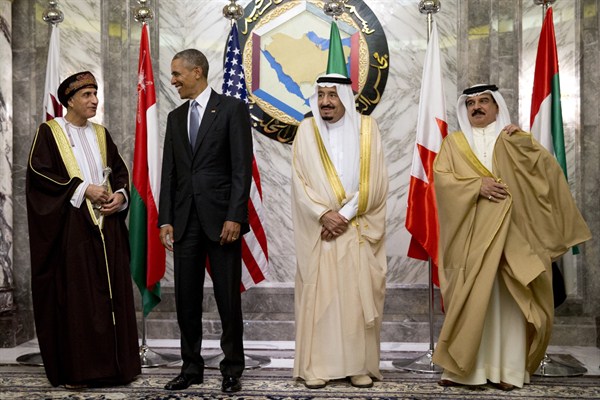The readout from President Barack Obama’s trip last week to the Gulf reflects the ongoing strains in U.S. relations with the Gulf monarchs. Both sides share responsibility for the current state of affairs. And it will take time to shift perceptions in the region so that the ongoing cooperation that is taking place is viewed more positively. It is also worth considering the possibility that the growing independence of the Gulf Arab states and the redistribution of power in their relationship with Washington will have a long-term benefit that’s just hard to see right now.
The coverage of Obama’s trip to the Gulf region last week for the second annual U.S.-Gulf Cooperation Council summit was dominated by a relentless pessimism and critical tone. Nearly all the comment and analysis from the region and the international media conveyed a sense of mistrust among the leaders, and a failure to find common ground on key issues in the crisis-prone region.
There are at least three reasons why the perceptions of the summit, and of U.S. policy toward the region in general, are so negative.

